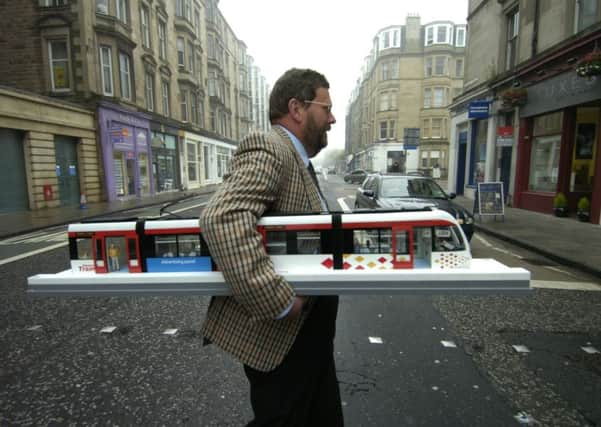Ex bus boss stuns tram inquiry with Holocaust comparison


Neil Renilson was appearing before Lord Hardie, who is chairing the inquiry, for a second day after beginning his oral evidence on Tuesday afternoon.
Earlier in the day the inquiry heard Mr Renilson – under whose leadership Lothian Buses won several awards – explained he had rationalised his concerns over the project by adopting what he described as “the Schindler strategy”.
Advertisement
Hide AdAdvertisement
Hide AdOskar Schindler is known the world over for his efforts to save more than 1000 Jews from being sent to the gas chambers by the Nazis during the Second World War.
Mr Renilson, who began giving evidence in the morning, was due to continue after lunch but upon resuming proceedings, Lord Hardie announced he was “no longer fit” to continue and would instead do so at a future date.
Before lunch, counsel to the inquiry, Jonathan Lake QC, had asked Mr Renilson for this thoughts on the terms of the project’s final business case, which was approved by councillors in December 2007. Mr Renilson said that at first he was “no particularly bothered” when it became clear £500 million of government money would be spent on the project.
However, he said that as time progressed he “started to have more qualms”.
Advertisement
Hide AdAdvertisement
Hide AdHe said: “I rationalised it with myself and allowed myself to sleep at night by adopting the Schindler strategy.
“I could have done a Trudi Craggs or Rebecca Andrew, stood up, made my point and been moved, because that was inconvenient, not wanted: don’t want to hear that, out you go. I didn’t wish to be excluded. I thought I could do a lot more good by staying there and mitigating the effects as best I could, by arguing when it was appropriate against things, by lobbying, by speaking to people, to try and ensure that what the city got was the best possible tramway we could.”
Mr Renilson, who was also chief executive of Transport Edinburgh Limited (TEL) was questioned further about how he raised concerns. He said he had done so with senior council figures in one-on-one discussions.
Mr Lake said: “What then the council were faced with was, on the one hand, one-to-one discussions of the nature you have described, where you say you expressed concerns.
Advertisement
Hide AdAdvertisement
Hide Ad“On the other hand, they had the formal documents being issued by TEL such as the business case, saying ready to proceed.
“Was it not incumbent upon you, if you had the concerns, to make them plain in some way in a written form or to qualify the business case, rather than allow the company of which you were chief executive to give advice to the council that all was well?”
Mr Renilson replied: “No. If Oskar Schindler had followed that policy, 1200 people would have burnt in the gas ovens.
“Because he chose to follow a different policy, the policy I followed, 1200 people survived.
Advertisement
Hide AdAdvertisement
Hide Ad“If he had followed the policy you are suggesting, he would have been taken out and shot.”
At this point Lord Hardie interjected, telling the witness: “Mr Renilson, we’re concerned with the Edinburgh tram inquiry and not with Oskar Schindler. So can you try to concentrate on the question.”
The exchange followed a number of rebukes the previous day, in which Lord Hardie asked Mr Renilson to take his hand out of his pocket while swearing the oath and to stop speaking over Mr Lake.
The inquiry continues.